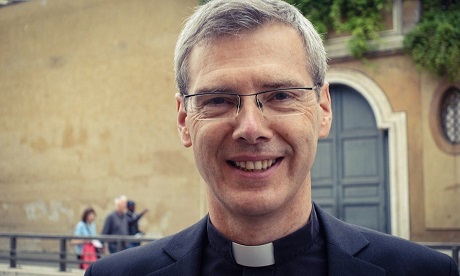One of Germany’s new bishops is calling for a “new theology” as an urgent response to revelations of the clerical abuse of power.
“We still haven’t fully realised that the crisis of confidence is charging into the Church’s timberwork with unmitigated force,” Bishop Heiner Wilmer says.
He has already drawn criticism from the establishment when, three months after his appointment as Bishop of Hildesheim, he told a newspaper that abuse of power was in the Church’s DNA.
“I had reckoned with criticism, but not that so many people would be quite so distressed,” he says.
Wilmer thinks the Church has forgotten abuse of power is as old as the Gospels. The way the disciples quarreled over who was first among them is an example.
He notes that the Church’s reaction to the abuse crisis up to now has been to apply discipline and canon law, improve prevention and communications and work together with the judiciary and state authorities.
In his view, the Church must ask itself what the power abuse crisis means for “the way we speak about God, the Church and the way we proclaim the Gospel.”
Hushing up clerical sexual abuse occurred because it was seen as something that sullied the holiness of the Church – so it had to be covered up, he says.
“We must come down from there and see the Church’s sinfulness but also tackle the problem theologically.”
“We were far too interested in polishing the Church’s image and failed to see the human being. I find that truly terrible!” he says.
Over the past century, we “allowed the Church to deteriorate into a moral institution focused on what may or may not take place beneath the sheets,” he says.
The sixth commandment is not the only commandment, he notes.
Wilmer says Christ’s message is both moral and aimed at liberating and redeeming human beings.
He thinks the Church must become a community that uplifts people, where the Gospel is proclaimed in a way that fascinates people and that those who are only interested in the Church’s survival “have already lost.”
Although he says the German bishops’ synodal procedures are engaging the laity in discussions about issues like clerical power, the Church’s sexual morality and the priestly lifestyle may not be easy, but he is convinced they will be successful.
Nonetheless, it will take a lot of courage on the bishops’ part “to walk shoulder to shoulder” with the laity and discuss priestly ordination, celibacy and the place of women in the Church.
While he says he is “passionately” committed to celibacy, “it must be made to shine more radiantly” by being voluntary rather than mandatory.
He also believes it is crucial for women to be given leading positions and greater responsibility in the Church.
If the Church does not find a way of putting these reforms into practice, it will become marginal he says.
Source
